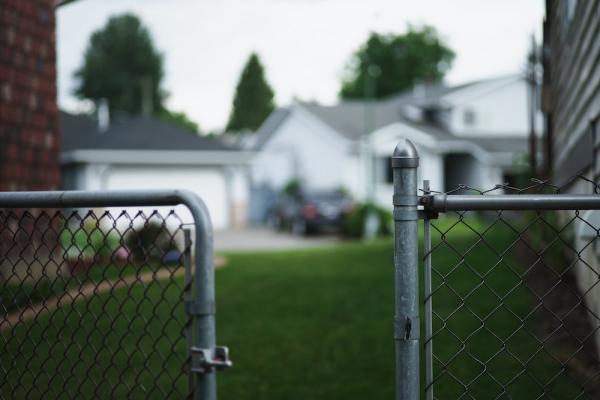In December, I had the privilege to attend COP 25 — the U.N. Framework Convention on Climate Change in Madrid, the global center for climate discussions and the birthplace of the Paris Agreement. As the news would later report, the conference was a major letdown overall for the international community in terms of commitment-making and raising ambition — particularly because it was the last time the United States would sit at the negotiating table before our formal withdrawal from Paris. And yet, it was in the spaces in between all the negotiations where I was challenged to rethink the ways we approach global climate change, and to instead think local.
Amid technical negotiations and trying to make meaning of abstruse industry terms — while listening to the top polluting countries recite some version of the same speech on how they are working to address the issue — I sensed that familiar, unwelcome feeling of being drowned by the immensity of it all. The painstaking process of reaching global agreement on an issue so multi-dimensional, so all-encompassing and yet immediate, is uncomfortable. But I was there as a Christian witness; my purpose was to notice and respond to where God was acting on the COP grounds. So I began each day searching for the faces and voices God wanted me to pay attention to.
For me, it was the smallest countries or those responsible for the least amount of emissions whose verve of tone disrupted the humdrum and empty diplomatic language of so many on the global stage. These countries’ leaders spoke with utter clarity about what climate change was doing and was projected to do to their countries in the near future. Many celebrated their cultures’ close relationship with land and sea and whose livelihoods and liberation were caught up in the flourishing of the natural world surrounding them.
“We cannot hide behind convoluted rhetoric and keep our promises halfway,” the representative from Andorra quipped.
“We depend on action for survival,” the representative from Honduras said.
“Climate security will be a precondition for peace and stability,” said the representative from Nauru, a small island developing state near Australia. “Justice is a word we do not use enough in diplomatic circles, but it should be a word we use here.”
A representative from the Philippines described how climate displacement and migration was one of the worst impacts of it all – how millions are now being forced to leave their homelands due to unlivable and unfarmable conditions.
The representative from the Vatican, who was one of the last to speak, implored the world to keep human dignity at the center of our actions.
But the words from the representative from Greece hit me hardest: “Seventy-five percent of global emissions are shared by 12 countries, and none of them today are at this table.”
I felt the weight of the message these countries were bringing and the responsibility that countries like the U.S. had to act. What does it look like for me, as a Christian witness living in the U.S., to, as the Vatican representative put it, keep human dignity at the center of my efforts on climate action — and to work toward climate justice where I called home? The climate crisis is a challenge that affects people unevenly and inequitably, as so many of our social ills do. How do we even begin, as Christians, as citizens – to care for creation in a sustained, genuine, and Christlike way?
Here’s my realization: It doesn’t require attending COPs every year, to traverse the world collecting every single story and dimension of how climate change is affecting people worldwide (In fact, that would be counterproductive considering the amount of emissions we would generate). What it does require of us is to pay attention to the myriad stories that are already before us, and then to act, right where we are, to co-create a future of justice and peace and build genuine, deep, and lasting relationships with those in our own communities who are most susceptible to the effects of climate change. Local residents who have lived on the land for decades, if not generations, are the real experts on what is needed and what tools are best.
For me, this kind of deep discipleship looked like volunteering with Detroiters Working for Environmental Justice and learning from folks like Guy Williams and Grace Doss about how floods from the Detroit River were regularly inundating the roads as well as learning about the Principles of Environmental Justice. Today in Washington, D.C., that looks like showing up at house meetings for organizations like ONEDC or Peace Walks DC because climate change is an intersectional issue that crosscuts and exacerbates existing crises like housing and gun violence, and these issues are most effectively addressed together.
When we tune into the litany of climate disasters happening at such a massive scale and rapid speed, it can be so easy to slip into despair, apathy, and feeling overwhelmed. Theologian Walter Brueggemann reminds us that the basis of hope is the reality that God is an active agent in the world. I can think of no better way to experience that reality and create that hope than to seek out and stand alongside our local brothers and sisters on the frontlines of environmental injustices in accompaniment and solidarity.
In the book How Change Happens, Duncan Green emphasizes that movements are only effective when those who are directly impacted are at the center and at the top of leadership levels. This was true in the civil rights movement, the women’s suffrage movement, and movements throughout history. It must now become true for the climate movement, one that is often centered on affluent white youth — who are often removed from the immediate impacts of climate change — while Indigenous and black leaders have consistently stood on the frontlines protecting their communities from harm and toxic pollutants for decades. When we truly hold ourselves accountable to the leadership of local communities impacted by the crisis, the situation moves beyond the diplomatic and theoretical and into the real.
It was Christ who modeled for us how critical it is to get up close and personal, by going out of his way to spend time with the most vulnerable. As Christian disciples, our calling is to go deeper into the spaces our bodies already inhabit, partnering with those on the frontlines to alleviate the effects of environmental racism. Through our active, mutual participation in the “ministry of reconciliation,” as apostle Paul describes, we have a rich opportunity to work toward realizing the beloved community in the places in which we live.
On-the-ground solutions to environmental challenges are becoming the most effective and practical strategy. Cities today are leading the way on climate resilience strategies, which are specific to the city’s infrastructural, geographic, spatial and topographic makeup, through initiatives like 100 Resilience Cities and Climate Ready programs, which help cities prepare for the long-term impacts of climate change.
After Trump pulled the U.S. out of the Paris Agreement, it was city mayors who signed onto the “We’re Still In” campaign, committing their cities to practicing responsible stewardship. Today, states are committing to 100 percent clean energy by 2040 or before, and regions are implementing initiatives like the Regional Greenhouse Gas Initiative that leverage the best in the region to address regional challenges. The implications of “think global, act local” are real and many.
During a church service held in Madrid at COP 25, the environmental missionary Lowell Bliss offered that creation care at its best isn’t inherently or exclusively a “political” or “environmental” thing; it’s, put simply, love. Creation care is love for people’s souls, love for people’s bodies, and love for the ecosystems that those bodies and souls walk around in.
“The environment is falling upon the people we love,” he said.
Creation care at its core is worship, is discipleship – an opportunity to love more fully and deeply what we have been gifted by God – each other and the richness of creation. And it turns out that the best way to love our global neighbor is to simply to start by loving our local neighbors well.
Got something to say about what you're reading? We value your feedback!







